|
Shepherds of Christ |
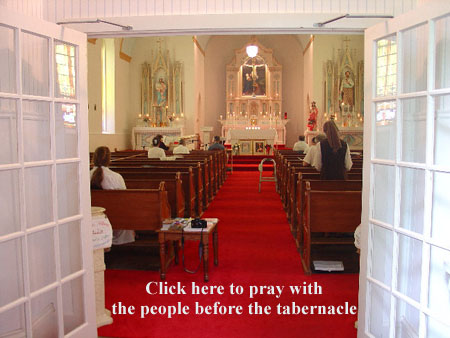 |
June 5, 2011
June 6th Holy Spirit Novena
Scripture selection is Day 3 Period I.The Novena Rosary Mysteries
for June 6th are Glorious.
Please pray for Jimmy.
June 5th - 6:20pm
Please tune in and pray.
May 28, 2011
A Message from Jesus:
Please give the money
to publish
the Cycle B
Book.
This is an urgent request.
Please help us with a donation.
Or
Call Doris or
1-727-725-9405
Call Rosie
1-888-211-3041
The Florida Book Store
June 5, 2011
R. Life is a journey
We have to live every day and try to do
God's will
What we do effects our relationship
with God and others
When we do not do God's will, and are
unloving then we hurt our
relationship with God and others
We can rupture our relationship
with God and others by mortal sin
God says that we are to love others and
if we do not love others whom we
see, how can we love God whom
we do not see
We know we can trust God
God is true to His word
God wants us to take responsibility for
our actions
The devil tells us to disobey and then
tells us its okay we disobeyed
God gives us a conscience we have
to keep living by the commandments of
God and not listen to the lies of satan who
wants us to disobey, not be accountable
and not be responsible for our actions
The devil tells us right is wrong and wrong
is right the devil wants us to sin
the devil lies to us, uses our past feelings
to play on so he can cause disharmony,
disorder and tear people apart
God wants obedience to Him, to
those over us, observing just authority,
adhering to the structure, order,
harmony, unity and love
Loving God is respecting God and
obeying His commandments
Freedom comes in doing God's will
When we deviate from God's will we
are sorry and make a firm purpose of
amendment to try firmly not to do it again
Our life is lived to serve God we
hear His voice the voice of the Good
Shepherd we recognize it we don't
listen to the voice of satan we recognize
he is not our Master we do not follow
satan's voice We know the Master's voice
we live to grow in virtue we pray
for an increase in faith, hope and love
We see through the eyes of the Heavenly
Father more and more
Because of original sin we have distorted
vision we see God distortedly we
see others distortedly (not with the true vision
of God what God wants), we see ourselves
distortedly (not through the eyes of God)
We want to see through the eyes of faith
belief in the one true God seeing through
eyes where the Holy Spirit has enlightened the
eyes of our hearts
Preparing ourselves for the beatific
vision Being full of God's grace in
heaven full of His life
Dear God open the eyes of our hearts to
see through faith and to dwell deeply
in the Heart of Jesus
From Tell My People
Jesus: "My beloved friend, tell My people to pray daily to the Holy Spirit. They are to pray for an increase in His gifts. My people must realize that the Holy Spirit comes to transform them. The Spirit desires to transform you more and more according to My image. Those who are docile to His touch become increasingly shaped in My likeness. He performs this marvel within Mary's Immaculate Heart. The more one dwells in My Mother's Heart, the more active are the workings of the Spirit. The Spirit leads Mary to place you within My own Heart. In both Our Hearts, then, your transformation continues. The more you are formed after My own Heart, the more I lead you to the bosom of My Father. Tell My people all this. Tell them to pray daily for a greater appreciation of these wondrous gifts. I am Lord and Master. All who come to My Heart will be on fire to receive the gifts of the Spirit in ever greater measure! I love and bless My people!"
Reflection: The Holy Spirit is given to us to fashion us ever more according to the likeness of Jesus. And the more we are like Jesus, the more Jesus leads us to the Father. Do we, each day, pray to the Holy Spirit to be more open to His transforming influence? Do we strive each day to grow in union with Mary? The greater our union with our Mother, the spouse of the Holy Spirit, the greater is the transforming action of the Holy Spirit within us.
end of excerpt
Excerpts from Response in Christ by Fr. Edward J. Carter, S.J.
EIGHT Christian Faith
2 Through faith we share in God's vision of reality, and we view God and creation in some way as does God Himself. This vision exists on a level of knowing which surpasses the intellect's natural capacity to grasp reality. Although faith gives only a faint share in God's vision compared to the divine knowledge itself, it is still the greatest vision of reality which is possible for man in his temporal existence.Faith gives the Christian a new capacity for knowing. It enables him to attain truths about God and His creation which would be otherwise unknowable. Faith also enables us to know certain truths which are within the grasp of natural reason, but which are attained by many only with difficulty.
Faith, as St. Thomas states, assimilates us to the divine knowing.
What are some of the characteristics of Christian faith? First of all, it is at the same time both certain and obscure. Faith is certain because it is a special sharing in the knowledge of God, God who is the highest truth. The strength of my faith, then, depends not on arguments and proofs from reason. These give a rational foundation to my faith, but they are not faith itself. Rather, the strength of faith depends upon the degree to which God takes possession of the Christian in grace. As the Christian grows in grace, the various infused virtues take deeper root, and the Christian lives more and more the life of God. In regard to faith this means that the Christian is being more vitally assimilated into the divine knowing. His faith becomes more firm. This does not mean that we always correctly estimate the strength of our faith. For various reasons we can at times think that our faith is growing weaker when it is actually becoming stronger. Such an impression can be present as faith is being purified. This process of purification will be touched upon in the present chapter, but also later in the chapter on prayer and the one on the mystical life.
If faith is certain, it also has an obscurity about it, despite the fact that faith is also light. Faith is obscure because its realities are unseen. These truths of faith will be surrounded with a full brightness only in the beatific vision. Then faith will no longer be necessary. God and His truth will then be immediately present to us. "Now we are seeing a dim reflection in a mirror; but then we shall be seeing face to face. The knowledge that I have now is imperfect; but then I shall know as fully as I am known." (1 Co 13:12).
Because the truths of faith are not possessed here below with the complete light of the beatific vision, temptations against faith are possible. If these do occur, we should not be unduly disturbed. Great saints, such as St. Jane Frances de Chantal and St. Teresa of Lisieux, have experienced this trial. If temptations against faith occur, how should we handle them? We should not confront the temptation directly, for this only deepens its impression. We should let the temptation pass by as calmly as possible, taking reasonable means to occupy our attention with something positive. If we react correctly to the temptation, our faith will be strengthened and purified. Faith certainly can be purified in other ways. Consequently, we should not think it necessary to experience these temptations to achieve faith's purification. It is merely a question of properly benefiting from such an experience if it does arise.
Some seem to speak of temptations against faith in the same way as they do concerning difficulties about the truths of faith. We prefer to make a distinction. Although difficulties concerning faith can certainly lead to temptations to disbelief, it seems that such difficulties can be present without actual temptation against faith. This kind of difficulty or questioning can actually be a desire to understand more perfectly the mysteries of faith. Such questioning, as opposed to temptation to disbelief, can be handled directly through study, reflection and dialogue with persons competent in theology.
We are presently discussing some of the characteristics of faith. We have said that it is both certain and obscure. It is also evolving.
3 By this we mean that the Church, as she progresses through the ages, is meant to strive constantly for a more perfect understanding of the truths of revelation. This is one sense in which the Church's faith evolves. It evolves also in the sense that the Church, reading the signs of the times, must constantly endeavor to present Christ's revelation in categories which are relevant to each succeeding age.4 The Church must so act because of the very nature of revelation. God has revealed Himself in Christ in order to exact a response from man. The Church also has to be concerned about the response which any age makes to her continual presentation of God's revelation. Since one of the factors which will determine man's response to God's word is its discernible relevance to his here-and-now existence, the Church is obligated to make her teaching of the faith as meaningful as possible according to all the various exigencies of each and every age.The faith of the individual Christian likewise has an evolving dimension because his faith participates in the evolutionary growth of the Church's faith. But the Christian's faith evolves also precisely because it is the faith of an individual. One's understanding of the mysteries of faith can grow indefinitely. This growth will take place not only through the objective means commonly available to all within the Church, but also through the more subjective means which are peculiar to individuals as individuals. Consider the fact that one's faith evolves as his experience of life evolves. Faith is part of our total existence, and God often causes us to understand more perfectly the mysteries of faith by our actual experience of them in the concrete circumstances of our individual lives.
Christian faith is certain, obscure to some extent, and evolving. There is a final set of characteristics we would like to mention. As with all aspects of our grace-life, faith is both incarnational and transcendent.
5 At the basis of faith's incarnational dimension is the fact that faith is received within this world's material framework. Faith partly depends upon the tangible and concrete for its proper nourishment, growth and expression. One example of this is faith's relationship to the liturgy with its very obvious incarnational dimension. Another example is that faith must be exercised within the ordinary framework of the Christian's everyday experience of work, relaxation, pain and joy. Again, such a framework of daily life has a very obvious material or incarnational aspect.If faith is incarnational, it is more ultimately transcendent. The truths of faith, although having a relationship to man's material world, are themselves above it. This fact constitutes one aspect of faith's transcendency. Another aspect is the fact that our conceptual formulation and expression of the mysteries of faith do not completely exhaust their reality. This holds even for the Church's official teaching of these mysteries. It also holds true for theology's expression of the Christian mystery, and for the individual Christian's personal conceptualization of faith's realities, a conceptualization which must be, of course, in proper harmony with the Church's official teaching. Summarily, the mysteries of faith cannot be totally confined to our human categories of thought and speech. These are meant as means to lead us closer to faith's transcendent realities as they are in themselves, especially to the ultimate transcendent reality, our Trinitarian God. ...
8 If I respond properly to God revealing, I achieve in graced freedom my greatest potential as a person. I become the person I should become.By faith, through the order of knowledge, we enter into an intimate personal relationship with the Trinity. Because faith is thus fundamentally a personal dialogue between God and the Christian, it has a deep, personalizing efficacy.
Our faith-encounter with God centers in Christ. It is obvious why this is so, since it is through His Incarnate Son that the Father has spoken and continues to speak to us. Christ contains all revelation in His Incarnate person. Christ revealed, not only by His words, but also by everything that He was and did. Christ has spoken to us not merely through verbalized intellectual truths, but through His total Incarnate person. He revealed by giving His complete self, not only His words. This fact has deep significance concerning our response to Christ's revelation. For just as Christ has given us the Father's truth in a personal way through the loving gift of His complete Incarnate person, so I must respond in the same manner. I must assent to the truth of Christ, not only with my intellect, but in love with my total being.
Christ's message cannot be separated from His person. If I am authentically to respond to His truth I must accept everything about Christ. Full Christian faith is commitment of my total person to Christ and to the total mystery of Christ. This, of course, does not mean that this commitment is initially as perfect as it can become. My entire Christian life is a growth in this response. However, the initial response is complete in the sense that I open my complete being to Christ with the determination that I will allow myself to be assimilated to Him as He wishes.
As the Christian responds in loving faith to Christ, he discovers his true existence. He has discovered a meaning outside of himself. And, paradoxically, the more he goes out of himself into this true meaning of life who is Christ, the more the Christian becomes himself. Now in living faith he views all reality with Christ, through the vision of Christ. The Christian sees that with Christ, and in the Spirit, he must spend himself in love for the Father, man and man's world. We see, then, that faith is not only encounter with God, but also with man.
Because he is caught up in the vision of this Christ whom he loves with his entire being, the Christian will not count the cost. As Christ was willing to pay any price to achieve the vision which the Father showed Him concerning man's redemption, so also the committed Christian, in order to achieve faith's vision, is willing to pay the price Christ asks of him.
Part of this vision which the man of faith has is the deep realization that living faith in Christ can transform a man's life. Consequently, the man of faith has a deep desire to help develop this faith in those already possessing it, and to aid in giving it to those not yet blessed with faith in Christ. He realizes from personal experience the importance of making such a contribution, for he knows that he himself has received this faith partly through the efforts of others, and that he is helped by them in so many ways in achieving faith's maturity. Finally, the man of faith is convinced that he promotes faith in others to a great extent by the way he himself lives it out: "The written and preached word, however, is intended to be incarnated in human beings. The word will have its most powerful effect only when it appears in another person who embodies the gospel in his life."9
In conclusion, let us be
convinced of the following. What faith in Christ means for ourselves and
others must engrave itself deeply within our souls. For only then will
we have a desire to open ourselves up fully to this life of faith in
Christ, and only then will we become the desired instruments in
communicating this faith to others. Each of us in his own way must be
caught up into the vision, the fire, the enthusiasm of St. Paul: ". . .
I believe nothing can happen that will outweigh the supreme advantage of
knowing Christ Jesus my Lord. For him I have accepted the loss of
everything, and I look on everything as so much rubbish if only I can
have Christ and be given a place in him . . . I want only the perfection
that comes through faith in Christ, and is from God and based on faith."
(Ph 3:8-9).
_________
2. Cf. St. Thomas Aquinas, In Boeth. de Trinitate,
q. 3, a. 1.
3. Cf. Karl Rahner, Belief Today (New York: Sheed & Ward,
1967), p. 49.
4. Cf. Edward Schillebeeckx, Revelation and Theology, Vol. 1
(New York: Sheed & Ward, 1967), p. 150.
5. For the transcendent dimension, cf. Rahner, Op. cit., pp.
80-89.
8. Cf. Jean Mouroux, I Believe (New York: Sheed & Ward,
1959), pp. 60-65.
9. Gabriel Moran, Theology of Revelation (New York: Herder &
Herder, 1966), p. 151.
1 In other places for example, in the chapter on the Church we have discussed the Christian's temporal involvement. It is not a case, consequently, of discussing this dimension of the Christian's life for the first time. It is rather a question of giving a more unified presentation.NINE Christian Hope
1. God as Object of Hope
If faith gives a special vision of God and His plan for us, hope enables us to desire to participate in the realities of faith's vision. Hope enables us to desire the supernatural order with God at its center. This desire is to be partially fulfilled on earth, but perfectly in eternity. Hope also enables us to trust that the good and omnipotent God will give us the means of achieving our desire. Moreover, hope, as do the other Christian virtues, contains a communal dimension. The virtue of hope is concerned not only with my own personal relationship with God. It also gives me a desire to want all men to participate increasingly in the mystery of Christ.
Our need of hope for the maintenance and growth of our Christ-life is immediately evident from the very nature of the life of grace. As we have said before, our merely natural efforts cannot achieve grace and develop its life. Grace is completely above nature, although, obviously, not contrary to it. God must always take the initiative in giving us grace. This He is always willing to do. The point we are stressing here is that we are completely helpless in the supernatural order without God's assistance in grace. The need for hope or trust in God is manifest. It is not that God refuses to give us grace unless our hope is what it should be. In His mercy and love He can overwhelm a person with His grace even though that person had been previously void of supernatural hope. However, the general principle is that we receive from God according to the measure of our trust in God.
We have every reason to trust greatly in God. Christ reminds us of this: "Look at the birds in the sky. They do not sow or reap or gather into barns; yet your heavenly Father feeds them. Are you not worth much more than they are?" (Mt 6:26). Here is another truth which should bolster our trust in God. The Father loved man overwhelmingly even when he was His enemy in sin. He showed this love by giving His Son to live and die for the human race. How much more, then, we should trust in God's love, now that Christ has re-united us with the Father.
This does not say that we always find it easy to trust as we should. In time of special difficulty or crisis, as our heads are bowed in anguish, we can especially experience the difficulty of properly hoping in God. Yet it is precisely at these times when trust is all the more necessary to us. Despite the pain, then, we must trust, even though at times it seems we are hoping against hope. We must learn to trust as did Abraham: "Though it seemed Abraham's hope could not be fulfilled, he hoped and he believed, and through doing so he did become the father of many nations exactly as he had been promised: Your descendants will be as many as the stars. Even the thought that his body was past fatherhood he was about a hundred years old and Sarah too old to become a mother, did not shake his belief. Since God had promised it, Abraham refused either to deny it or even to doubt it, but drew strength from faith and gave glory to God, convinced that God had power to do what he promised." (Rm 4:18-21).
God can act similarly with us as He did with Abraham. He can do great things with us if only we allow Him to do so. Among other attitudes, we must have that of hope or trust. We must trust that God can bring us to maturity in Christ. We must trust that the Father will give us all the graces necessary to accomplish our mission in life, difficult as this mission may seem at times. We must trust in this manner despite the great sense of our own weakness which can become especially manifest at times. As a matter of fact, the more we experience our own weakness, the more optimistic we should become.
This was the attitude of the saints. I think we often view the saints in the wrong light. We imagine that they must have felt very secure in the strength of their spiritual development. It seems rather that they were more aware of their weakness and helplessness than we are. Because of such an awareness, they more and more went out of their weakness into the strength of Christ. Therefore, they were secure. But, paradoxically, they were secure because they knew how weak they were. They became secure because they gave themselves completely to Christ, and to His reign of strength within them.
In our own measure we can imitate the saints. We, too, can learn to build upon our weakness. The realization of our weakness should actually increase our hope. The more we admit our helplessness, the more God tends to strengthen us with His grace. As long as we do not capitulate to our weakness, let us glory in our helplessness so that Christ may possess us as He desires. St. Paul tells us: "So I shall be very happy to make my weaknesses my special boast so that the power of Christ may stay over me, and that is why I am quite content with my weaknesses, and with insults, hardships, persecutions, and the agonies I go through for Christ's sake. For it is when I am weak that I am strong." (2 Co 12:9-10).
2. Hope and the Secular City
We have mentioned that the Christian's virtue of hope concerns not only himself and God, but others as well. Hope is one facet of our grace-life in Christ. It therefore partakes of that dimension of grace which links the Christian with man and his world.
Under this social aspect of hope we would now like to discuss ideas concerning the Christian and his involvement with the world. This relationship can also be termed involvement with the secular city.
Why do we connect such a treatment with the virtue of hope? There are other possibilities, but the concept of Christian hope does offer a logical opportunity for the discussion of Christian involvement with the secular. This is so because one of the thrusts of Christian hope is toward that which is not yet possessed in full. This is also one of the obvious dimensions of man's effort here below. He is always eager to build a better world, to progress to a higher form of temporal life than that which is at present possessed. This is true especially of contemporary man who is keenly aware that human life is not static, but is ever reaching out in an evolutionary desire for that which has not yet been attained. Christian hope elevates this natural desire of man and incorporates it into an effort of unifying all creation more and more into Christ: "Blessed be God the Father of our Lord Jesus Christ. . . . He has let us know the mystery of his purpose, the hidden plan he so kindly made in Christ from the beginning to act upon when the times had run their course to the end: that he would bring everything together under Christ, as head, everything in the heavens and everything on earth." (Ep 1:3-10).
This linking of Christian hope with human endeavor is one of the basic tenets of Teilhard de Chardin, a man who has contributed so much towards contemporary Christianity's awareness of the necessity of proper involvement with the secular. "Teilhard . . . bases his ethic of conquest on Christian hope . . . and situates the notion of 'conquest' precisely in eschatological perspectives . . . his idea of conquest is that it is a broad effort to build the world in view of the eschaton."2
Why should the Christian be concerned with the secular? Why can we say that the Christian should passionately love this world with all its authentic values? Why can we say that the Christian should love this world and desire its progress more than the nonbeliever? The answer to all these questions is simply that this world belongs to Christ. Through His human nature Christ has united to Himself not only man but also man's world. The entire temporal order has entered into the redemptive process. In the words of Vatican II, "Christ's work of redemption is directed both toward the salvation of men, as individuals, and at the renewal of the whole secular order. Hence the church's mission is not only to preach Christ and his grace to men, but also to bring the secular order to perfection by permeating it with the spirit of the Gospels."3
Christ, indeed, is the center of a new creation. In the view of Teilhard, Christ is the active point of convergence who gathers to Himself the evolving universe with all its various facets of progress.
4 Through His humanity Christ is gradually leading the universe back to the Father. At Christ's second coming the transformation of the universe will receive its final touches, and then Christ will present to the Father the new creation in all its perfection.In the meantime, before Christ's second coming, we Christians must contribute our share as we help Christ build a secular city which will blend properly with the total process of the new creation. What we accomplish does make a difference, not only in the sphere of the spiritual, but also in that of the material. The shape that we help give to the secular city will in some way remain for all eternity.
The Christian, then, is called to have a deep concern for the secular. Provided his secular involvement is accompanied by the previously discussed dimensions of the cross and transcendence, there is no reason why the Christian should not feel at ease with the secular and rejoice in his relationship to it. Because of his relationship to Christ, who in His humanity is at the center of the created order, the Christian should realize that he has a special, vital affinity for involvement with the temporal order in all its various dimensions. The manner in which this affinity is implemented will depend upon one's basic vocation and the personal graces attached. Yes, even the cloistered contemplative is called to be involved with the secular through the means available, such as prayer and sacrifice.
All of us have to be convinced that we are shaping our eternal destiny within the context of the secular city, the life of this world. God has given us no other milieu. Within this secular city we are shaping our eternity by giving ourselves in various ways to the service of man and his world. We thereby are shaping our eternity by helping to shape the eternity of the entire temporal order.
Each Christian has a peculiar contribution to make in the shaping of the secular city. No one else can fulfill your role, because no one else is the uniqueness which you are. What are the various contributions to be made to the building of the city? Some contributions are obviously highly spiritual a priest administering the sacraments. Some contributions are in the area of the material and the physical the work of a scientist. Some persons contribute to the furthering of the secular city in the neat, peaceful confines of an office.
Others contribute amidst the dirt, the poverty, the disease and the explosive anguish of the inner city. Some are asked to contribute, seeing little or no visible results of their efforts. Others are blessed with the consolation of observing the visible fruits of their labors. Some must labor surrounded with almost insurmountable difficulties. Others work at the building of the city almost unimpeded by any such obstacles.
There are many Christians performing many different tasks amidst many different circumstances. The common element in all this is that each Christian is helping Christ draw man and his world closer to Himself. It can be a painfully slow process, and the world in its historical evolution has at times seemed to be going away from Christ rather than toward Him. In all this we have to have faith that our effort in Christ does make a difference, whether that difference is apparent or not.
Christ, despite the suffering in
His life, rejoiced greatly in the accomplishment of His work. Let us
also, despite the pain and the effort and the suffering involved,
rejoice greatly in the Christian task allotted to each of us. Let us
realize that such rejoicing mingled with suffering is part of the
death-resurrection involved in evolvement of the secular city. Just as
death-resurrection was present in the life of Christ, just as it is
present in the life of the Church and each Christian, so it is present
in the evolving world order. Through the process of pain and effort and
suffering we believe that the world is slowly but surely being more
perfectly inserted into newness of life, into Christ's Resurrection.
Through our Christian hope we desire to make our contribution to hasten
the process. As we so labor with Christ we look ahead to the hour at
which Christ will bring to completion His redemptive work. Then, as all
becomes subject to Christ in perfect harmony, hope or expectation will
be fully realized in regard to the entire universe. Let us recall the
words of St. Paul: "After that will come the end, when he hands over the
kingdom to God the Father. . . . And when everything is subjected to
him, then the Son himself will be subject in his turn to the One who
subjected all things to him, so that God may be all in all." (1 Co
15:24-28).
__________
1. For a novel approach to the secular, cf. W.
Lynch, Christ and Prometheus: A New Image of the Secular (Notre
Dame: University of Notre Dame Press, 1970).
2. R. Faricy, Teilhard de Chardin's Theology of the Christian in
the World (New York: Sheed & Ward, 1967), p. 176, footnote.
3. Decree on the Apostolate of the Laity, No. 5.
4. Cf. Pierre Teilhard de Chardin, The Divine Milieu (New
York: Harper & Row, 1965), pp. 121-123.
R. God is the Most High
We see how much we have to learn
Obeying the Commandments and putting
God first is eminent if we
want peace and joy in our lives
We are learners
It is the devil who has us in competition and
thinking we know it all
If this is what we are doing
This is very self-centered
While we are being taught great things
in pride our whole focus is on
raising ourselves over
which is a false reality
God made all things
God has the Plan
We don't know it and
the devil doesn't want us to know
God or follow His Plan
So he 'crams the signals' when we
are being taught to get us
focused on our own vain glory
our making ourselves HIGH
like Eve did
She wanted to be equal to God
Reality is we will know when we
have the beatific vision we
are disciples of Christ Christ
is teaching us about Himself
even in the commandments
in putting God first
In relying on God, the Most High
In admitting we needed a Savior and
We need Jesus
We need His grace
We can't do it by our own might
I put my life in the hands of God
I turn my life over to Him
I believe in God
I believe in the Catholic Church
I believe in the Most High
I am under
God sends people to help us know Him
God gives us the Blue Books to know His love
I surrender to God and His Might
This is the sure thing
It is in obedience to the commandment
I put God first
God who is all good God knows all things
I surrender my will and my life to God
I don't worry about putting my trust
in God who created me
We get locked in by thinking we have to
do it ourselves
We need God
We must surrender and ask for His help in
our lives
Turn our will and our life over to God
live as Mary - doing His will
Do whatever He tells you
This is the message of the Blue Books
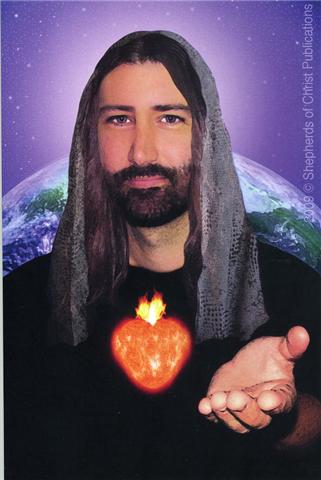
Prayer for Union with Jesus
Come to me, Lord, and possess my soul. Come into my heart and permeate my soul. Help me to sit in silence with You and let You work in my heart.
I am Yours to possess. I am Yours to use. I want to be selfless and only exist in You. Help me to spoon out all that is me and be an empty vessel ready to be filled by You. Help me to die to myself and live only for You. Use me as You will. Let me never draw my attention back to myself. I only want to operate as You do, dwelling within me.
I am Yours, Lord. I want to have my life in You. I want to do the will of the Father. Give me the strength to put aside the world and let You operate my very being. Help me to act as You desire. Strengthen me against the distractions of the devil to take me from Your work.
When I worry, I have taken my focus off of You and placed it on myself. Help me not to give in to the promptings of others to change what in my heart You are making very clear to me. I worship You, I adore You and I love You. Come and dwell in me now.
-God's Blue Book, January 17, 1994
R. God is the Almighty, the All Powerful
the Most High
Freedom is found in doing God's will
Pride keeps us thinking we know it all
when in reality we don't
R. The devil tempted Eve to think she
could be equal to God
The devil wants us to think we
know it all
We need to realize we don't know
it all
God wants to reveal Himself more
and more to us
In baptism our knowing and loving
capacity is elevated
We can understand more and
more insight into the
Divine Mysteries because of
this
Insight into the mystery of the
Trinity
3 Persons in one God
Perfect love
The devil wants us to think we know
it all and he even wants us
to get angry when people will help
us understand more knowledge
about God
The devil wants us to block the opportunity
for ourselves because of pride
and anger to understand more
knowledge of God
We will know about God if we
get to heaven
The devil wants us to not know about
God, not listen to insight that
can help us understand more the
mystery
The devil wants us to have a closed,
competitive attitude about
knowledge of God
We were created to know, love
and serve God
Eve was tempted by the devil over
this very thing
the devil told her she could
be equal to God
We are like Eve when we close our
mind in pride and block the
great gift God gives to us
about knowing His truth
Do we know it all?
God told us in the first commandment
1. I, the Lord, am your God. You shall not have other gods besides me.
So we can put ourselves on the
throne above God
Sin is putting ourselves above
God
God wants us to have faith in
Him
We see Abraham and our Fathers
and their faith
Hebrews Chapter 11
Only faith can guarantee the blessings that we hope for, or prove the existence of realities that are unseen. It is for their faith that our ancestors are acknowledged.
It is by faith that we understand that the ages were created by a word from God, so that from the invisible the visible world came to be.
It was because of his faith that Abel offered God a better sacrifice than Cain, and for that he was acknowledged as upright when God himself made acknowledgement of his offerings. Though he is dead, he still speaks by faith.
It was because of his faith that Enoch was taken up and did not experience death: he was no more, because God took him; because before his assumption he was acknowledged to have pleased God. Now it is impossible to please God without faith, since anyone who comes to him must believe that he exists and rewards those who seek him.
It was through his faith that Noah, when he had been warned by God of something that had never been seen before, took care to build an ark to save his family. His faith was a judgement on the world, and he was able to claim the uprightness which comes from faith.
It was by faith that Abraham obeyed the call to set out for a country that was the inheritance given to him and his descendants, and that he set out without knowing where he was going. By faith he sojourned in the Promised Land as though it were not his, living in tents with Isaac and Jacob, who were heirs with him of the same promise. He looked forward to the wellfounded city, designed and built by God.
It was equally by faith that Sarah, in spite of being past the age, was made able to conceive, because she believed that he who had made the promise was faithful to it. Because of this, there came from one man, and one who already had the mark of death on him, descendants as numerous as the stars of heaven and the grains of sand on the seashore which cannot be counted.
All these died in faith, before receiving any of the things that had been promised, but they saw them in the far distance and welcomed them, recognising that they were only strangers and nomads on earth. People who use such terms about themselves make it quite plain that they are in search of a homeland. If they had meant the country they came from, they would have had the opportunity to return to it; but in fact they were longing for a better homeland, their heavenly homeland. That is why God is not ashamed to be called their God, since he has founded the city for them.
It was by faith that Abraham, when put to the test, offered up Isaac. He offered to sacrifice his only son even though he had yet to receive what had been promised, and he had been told: Isaac is the one through whom your name will be carried on. He was confident that God had the power even to raise the dead; and so, figuratively speaking, he was given back Isaac from the dead.
It was by faith that this same Isaac gave his blessing to Jacob and Esau for the still distant future. By faith Jacob, when he was dying, blessed each of Josephs sons, bowed in reverence, as he leant on his staff. It was by faith that, when he was about to die, Joseph mentioned the Exodus of the Israelites and gave instructions about his own remains.
It was by faith that Moses, when he was born, was kept hidden by his parents for three months; because they saw that he was a fine child; they were not afraid of the royal edict. It was by faith that, when he was grown up, Moses refused to be known as the son of Pharaohs daughter and chose to be illtreated in company with Gods people rather than to enjoy the transitory pleasures of sin. He considered that the humiliations offered to the Anointed were something more precious than all the treasures of Egypt, because he had his eyes fixed on the reward. It was by faith that he left Egypt without fear of the kings anger; he held to his purpose like someone who could see the Invisible. It was by faith that he kept the Passover and sprinkled the blood to prevent the Destroyer from touching any of their firstborn sons. It was by faith they crossed the Red Sea as easily as dry land, while the Egyptians, trying to do the same, were drowned.
It was through faith that the walls of Jericho fell down when the people had marched round them for seven days. It was by faith that Rahab the prostitute welcomed the spies and so was not killed with the unbelievers.
What more shall I say? There is not time for me to give an account of Gideon, Barak, Samson, Jephthah, or of David, Samuel and the prophets. These were men who through faith conquered kingdoms, did what was upright and earned the promises. They could keep a lions mouth shut, put out blazing fires and emerge unscathed from battle. They were weak people who were given strength to be brave in war and drive back foreign invaders. Some returned to their wives from the dead by resurrection; and others submitted to torture, refusing release so that they would rise again to a better life. Some had to bear being pilloried and flogged, or even chained up in prison. They were stoned, or sawn in half, or killed by the sword; they were homeless, and wore only the skins of sheep and goats; they were in want and hardship, and maltreated. They were too good for the world and they wandered in deserts and mountains and in caves and ravines. These all won acknowledgement through their faith, but they did not receive what was promised, since God had made provision for us to have something better, and they were not to reach perfection except with us.
R. We see about Thomas
John 20: 29
Jesus said to him:
You believe because you can see me.
Blessed are those who have not seen
and yet believe.
R. When we focus on ourselves as
the end the one with the
power to solve our problems
We have a 'dead-end'
We rely on the Most High and we
surrender to the will of God
We pray to God for wisdom to
handle difficulties
We rely on His might
We have faith in serving God
All things for the honor and glory of God
When we try to glorify ourselves
prove to others we are great
we are living in a false
reality when we put ourselves
on top, above God
We are always under God
I surrender my will to God's will
In this is my might,
my peace
freedom!!
Without God helping me move
the mountain, without His
direction, I am empty
and full of self
It is a false reality
Without God I can do nothing
Like a branch trying to bear
fruit without the vine
We are dependent on God
Our very existence depends on God
Our breath depends on God
I am one with my beloved God
I work under Him
God is my boss
I am to live to know, love and
serve Him as He wants
God is, alleluia!
This is reality!
God loves me
Jesus died for me
God wants to help me now
I surrender to do His will!
I surrender to know, love and
serve God
I put God first in my life
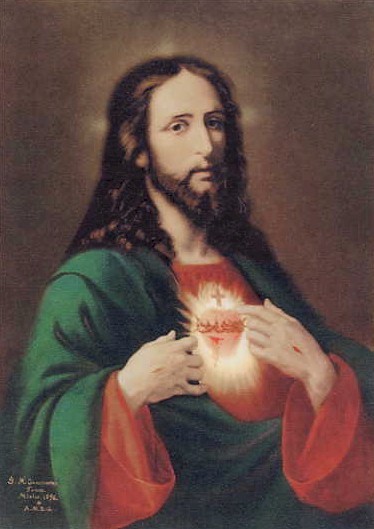
Song: Prayer for Union with Jesus
(refrain)Come to me, Lord, and possess my soul. Come into my heart and permeate my soul. Help me to sit in silence with You and let You work in my heart.
Come to me, Lord, and possess my soul. Come into my heart and permeate my soul. Help me to sit in silence with You and let You work in my heart.
I am Yours to possess. I am Yours to use. I want to be selfless and only exist in You. Help me to spoon out all that is me and be an empty vessel ready to be filled by You. Help me to die to myself and live only for You. Use me as You will. Let me never draw my attention back to myself. I only want to operate as You do, dwelling within me.
Come to me, Lord, and possess my soul. Come into my heart and permeate my soul. Help me to sit in silence with You and let You work in my heart. (refrain)
I am Yours, Lord. I want to have my life in You. I want to do the will of the Father. Give me the strength to put aside the world and let You operate my very being. Help me to act as You desire. Strengthen me against the distractions of the devil to take me from Your work.
Come to me, Lord, and possess my soul. Come into my heart and permeate my soul. Help me to sit in silence with You and let You work in my heart.
(refrain)When I worry, I have taken my focus off of You and placed it on myself. Help me not to give in to the promptings of others to change what in my heart You are making very clear to me. I worship You, I adore You and I love You. Come and dwell in me now.
Come to me, Lord, and possess my soul. Come into my heart and permeate my soul. Help me to sit in silence with You and let You work in my heart. (refrain)
Come to me, Lord, and possess my soul. Come into my heart and permeate my soul. Help me to sit in silence with You and let You work in my heart. (refrain)
R. I can live my life trying to plan
every detail who can do that
There may be a tornado!!
There may be an accident
There may be a sickness
How can we plan our lives,
every day, in every detail
We can't do it!
God I give You my life
Help me surrender to Your will!!
I want to serve You
I can try to block God from
working in my life
how foolish to think I don't
need Him and
how foolish to think I can
control
God is all powerful
I want His will
In this is my peace
There are sins of omission and
commission
God is the boss and
I do what He wants
God will give us the grace to
live as He wants if we
surrender and believe in Him
trust Him
love Him
endure trials to please Him
and do His will
I have a free will
Freedom is doing God's will
God is with me
The Father, Son and Holy Spirit dwell in my
graced baptized soul in a special way
God is greater than us!!
God is the Most High
We are here to please our heavenly
Father like Mary
We are always living to grow
in our knowledge of God
God is with me now
He loves me
I turn to Him
God wants me to say I am
sorry when I sin to
tell the truth about
myself to know my
good ways, to change those ways
that are evil not like Jesus
We walk by faith and not by sight
2 Corinthians 1: 24
We have no wish to lord it over your faith, but to work with you for your joy; for your stand in the faith is firm.
2 Corinthians 4: 13-15
But as we have the same spirit of faith as is described in scripture I believed and therefore I spoke -we, too, believe and therefore we, too, speak, realising that he who raised up the Lord Jesus will raise us up with Jesus in our turn, and bring us to himself and you as well. You see, everything is for your benefit, so that as grace spreads, so, to the glory of God, thanksgiving may also overflow among more and more people.
Ephesians 1: 17-23
May the God of our Lord Jesus Christ, the Father of glory, give you a spirit of wisdom and perception of what is revealed, to bring you to full knowledge of him. May he enlighten the eyes of your mind so that you can see what hope his call holds for you, how rich is the glory of the heritage he offers among his holy people, and how extraordinarily great is the power that he has exercised for us believers; this accords with the strength of his power at work in Christ, the power which he exercised in raising him from the dead and enthroning him at his right hand, in heaven, far above every principality, ruling force, power or sovereignty, or any other name that can be named, not only in this age but also in the age to come. He has put all things under his feet, and made him, as he is above all things, the head of the Church; which is his Body, the fullness of him who is filled, all in all.


Blue Book 6B is available.
1-888-211-3041
Please help us get the Cycle A
Book out to the priests.
Please help us with donations.
Call Rosie
1-888-211-3041
812-273-8405
Or send donations to:
Shepherds of Christ
P. O. Box 627
China, Indiana 47250
We need to print the

$1.00 plus shipping
| Rita Ring |
|
||||||||||||||||||||||||||||||||||||||||||||||||||||||||||||||||||||||||||||||||||||||||||||||||||||||||||||||||||||||||||||||||||||||||||||||||||||||||||||||
| Fr. Joe Robinson |
|
|
|
|
|
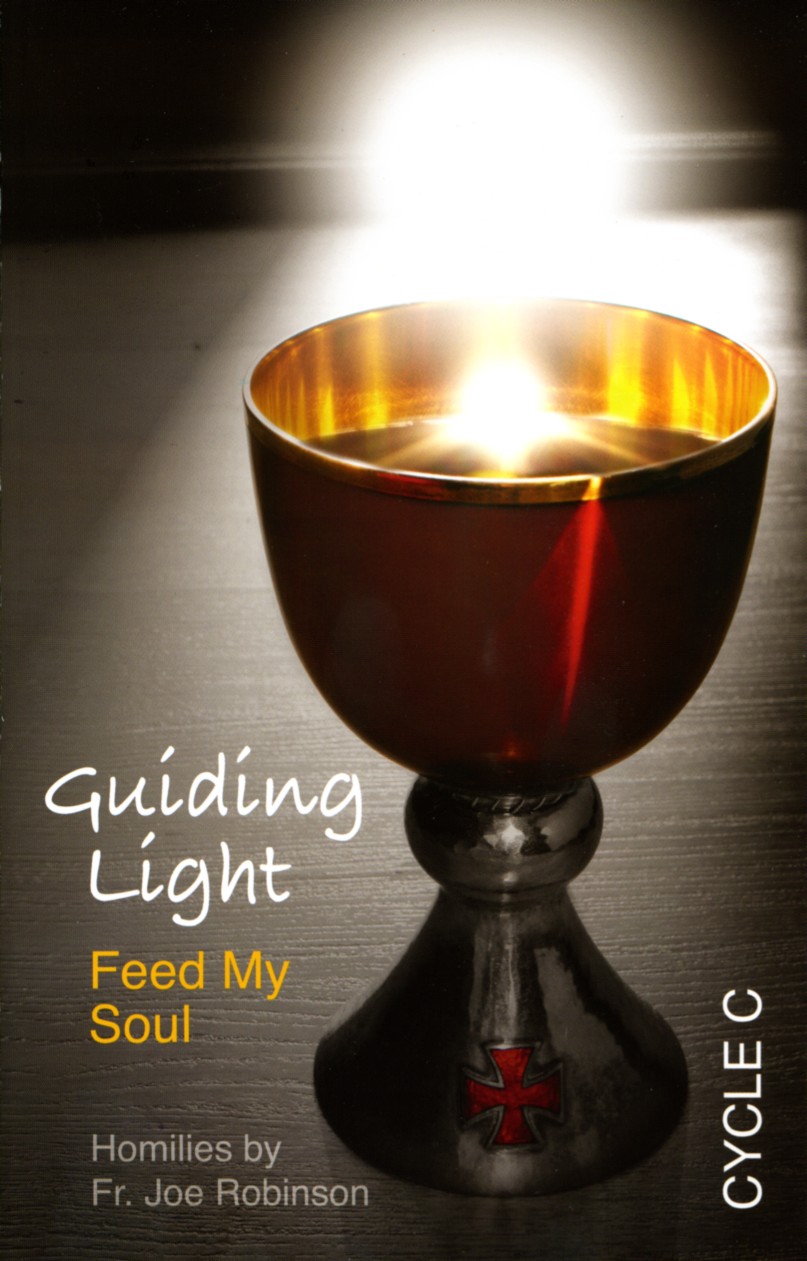
|
|
|
|
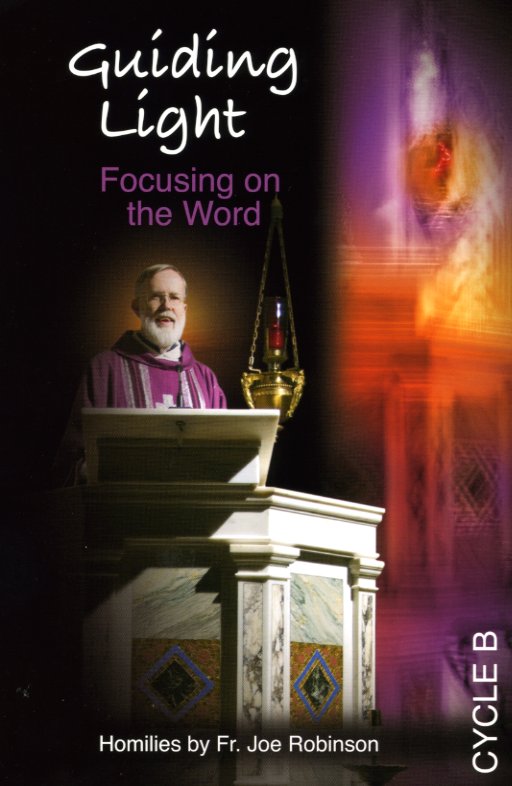
|
|
|
|
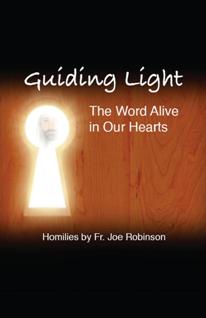
|
|
|
|
| Fr. Edward J. Carter |
|
||||||||||||||||||||||||||||||||||||||||||||||||||||||||||||||||||||||||||||||||||||
|
|||||||||||||||||||||||||||||||||||||||||||||||||||||||||||||||||||||||||||||||
|
||||||||||||||||||||||||||||||||||||||||||||||||||||||||||||||||||||||||||||||||||||||||||||||||
Get a canvas print of Mary's image
with a sliver of glass and
a little bottle of
Jesus and Mary water.The glass will be fixed behind the
back of the picture.Cost $200.00
Also available
a cup with a Mary's image on it
Cost $15
Call Doris
1-888-211-3041
or
1-727-725-9312
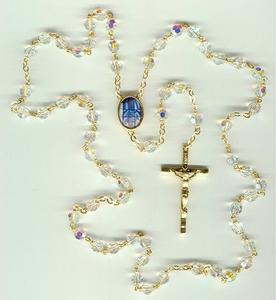
Rosaries with Mary's Image Available
Aurora Borealis Beads6mm - $30.00
8mm - $40.00
Call Doris
1-888-211-3041
or
1-727-725-9312
Statues
Sacred Heart of Jesus w/glass - 18
Our Lady-Guadalupe w/glass - 12
Limpias - 8
Immaculate Heart w/glass - 18
I Heart - Ivory w/glass - 18
Our Lady of Grace w/glass - 18
Our Lady-Mt. Carmel w/glass - 18
Our Lady of Lourdes w/glass - 18
Infant of Prague w/glass - 24
Sacred Heart of Jesus w/glass - 24
Sacred Heart -Blessing w/glass - 24
Sorrowful Mother w/glass - 24
I Heart - Ivory w/glass - 24
I Heart of Mary w/glass - 24
Our Lady of Lourdes w/glass - 24
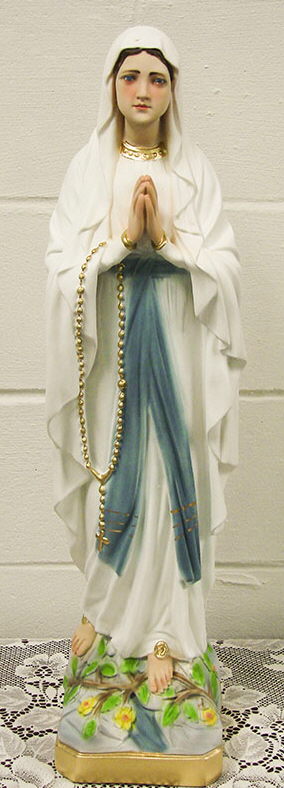
Our Lady-Guadalupe w/glass - 28
Our Lady of Grace w/glass - 24
Our Lady-Mt. Carmel w/glass - 24
St. Padre Pio
St. Joseph
St. Therese
St. Francis
St. Anthony
St. Claire
Limpias
St. Jude
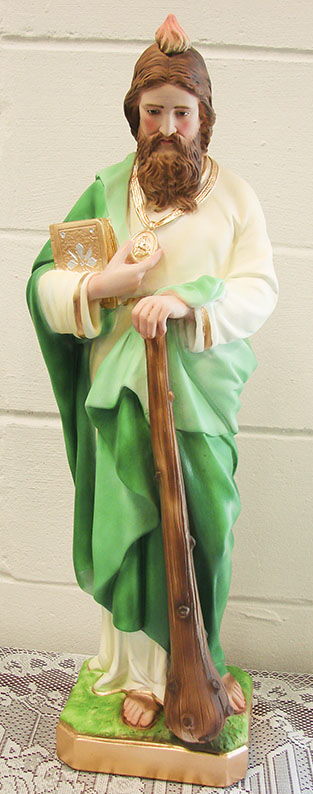
Divine Mercy
Holy Family
Angel
St. Philomena
Pieta - Marble
Pieta - Color
Holy Family
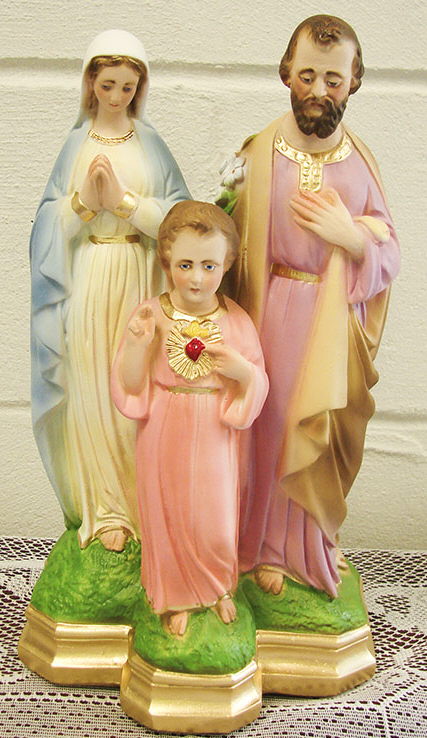
St. Anthony - 18
St. Francis - 18
St. Joseph - 18
St. Therese - 18
St. Rita - 18
St. Clare - 12
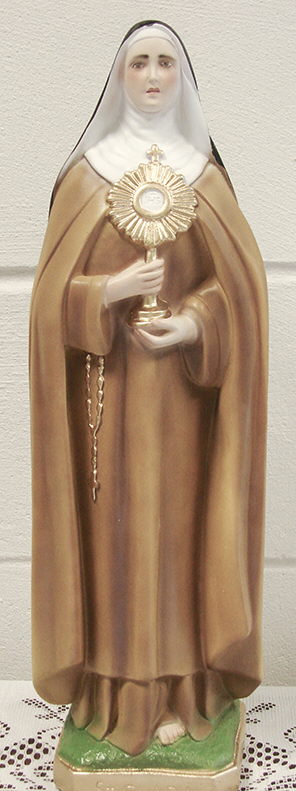
St. Rita - 12
St. Padre Pio - 12
Divine Mercy - 12
St. Michael - 11
Shepherds of Christ Ministries
P. O. Box 627
China, IN 47250
Toll free - 1-888-211-3041
Local - 1-812-273-8405
fax - 1-812-273-3182
web: www.sofc.org
e-mail: info@sofc.org
Size Price Quantity Holy Family
24"
$180
Limpias
24"
$125
St. Anthony
24"
$125
St. Claire
24"
$125
St. Francis
24"
$125
St. Joseph
24"
$125
St. Jude
24"
$125
St. Padre Pio
24"
$125
St. Therese
24"
$125
Divine Mercy 22"
$125 Angel 22"
$100 St. Philomena 20"
$100 St. Philomena 16"
$65 St. Joseph 18"
$65 St. Francis 18"
$65 St. Anthony 18"
$65 St. Rita 18"
$65 St. Therese 18"
$65 Pieta - Color 15" $75 Pieta - Marble 15" $75 Holy Family 12"
$60 St. Padre Pio - standing 12"
$40 St. Padre Pio - sitting 8"
$50 St. Michael 11"
$40 St. Rita 12"
$40 Divine Mercy
12"
$40 St. Claire 12"
$40 Limpias 8"
$25 Our Lady of Guadalupe w/glass 28"
$500 Our Lady of Mt. Carmel w/glass 24"
$500 Immaculate Heart of Mary w/glass
24"
$500 Immaculate Heart - Ivory w/glass
24"
$500 Infant of Prague w/glass
24"
$500 Our Lady of Grace w/glass
24"
$500 Our Lady of Lourdes w/glass
24"
$500 Sacred Heart of Jesus w/glass 24"
$500 Sacred Heart -Blessing w/glass 24"
$500 Sorrowful Mother w/glass
24"
$500 Immaculate Heart of Mary w/glass 18"
$300 Immaculate Heart - Ivory w/glass 18"
$300 Sacred Heart of Jesus w/glass 18"
$300 Our Lady of Lourdes w/glass 18"
$300 Our Lady of Grace w/glass 18"
$300 Our Lady of Mt. Carmel w/glass
18" $300 Our Lady of Guadalupe w/glass 12"
$200 Fatima w/glass
11"
$150 Fatima w/glass
18"
$250 Pilgrim Virgin w/glass 12"
$160 Pilgrim Virgin w/glass 15" $200 Pilgrim Virgin w/glass 18" $250 Pilgrim Virgin w/glass 27"
$450
Call for Shipping Price (1-888-211-3041)
Name
Sub-Total Address
IN Tax (7%) City
Shipping State Zip
Donation Telephone
Order Total
Call Doris
1-888-211-3041
or
1-727-725-9312
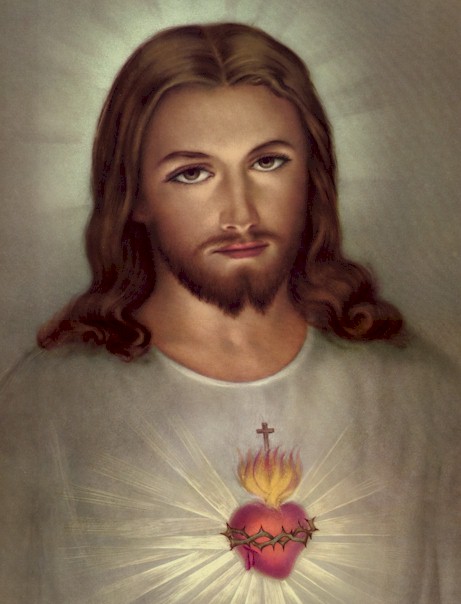
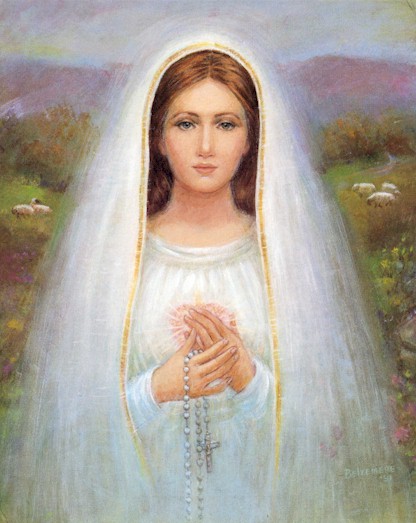
Immaculate Heart and Sacred Heart Pictures Available
with & without frames - different sizes available
Call Doris
1-888-211-3041
or
1-727-725-9312
 Copyright
© 2011 Shepherds of Christ.
Copyright
© 2011 Shepherds of Christ.
Rights for non-commercial
reproduction granted:
May be copied in its entirety, but neither re-typed nor edited.
Translations are welcome but they must be reviewed for moral and
theological accuracy by a source approved by Shepherds of Christ Ministries
before any distribution takes place. Please contact us for more information.
All scripture quotes are from the
New Jerusalem Bible, July 1990, published by Doubleday.
Revised: January 1, 2011
URL: http://www.sofc.org
Contact Information for Shepherds
of Christ
Email: info@SofC.org
Shepherds of Christ Ministries
P.O. Box 627
China, Indiana 47250
Telephone: (toll free) 1-888-211-3041 or (812) 273-8405
FAX: (812) 273-3182